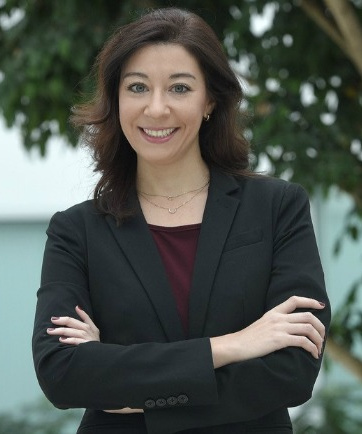As seen during this year’s midterm elections, when false and unsubstantiated claims were prominent, social media companies struggle to regulate and contain political misinformation on their platforms. In response, WhatsApp, a free messenger app for smartphones that is owned by Facebook, has selected 20 research teams out of 600 applicants from around the world for WhatsApp Misinformation and Social Science Research Awards.
While WhatsApp is a powerful medium for political discourse and engagement, it can also be misused to share inaccurate or inflammatory political content. WhatsApp created the research grants to gain a better understanding of this space from the perspectives of both those in politics and voters in order to prevent misuse of the product in electoral processes.

A team led by Elizabeth Stoycheff, a Wayne State University assistant professor of communication, and Kunto Wibowo, a recent Wayne State alumnus and communications lecturer at Universitas Padjadiran in Indonesia, will use its $50,000 grant to tackle misinformation and privacy.
Specifically, the team will interview Indonesian campaign officials about their strategies for using the WhatsApp platform in the lead up to the 2019 national elections, followed by a face-to-face, nationally representative public opinion survey that assesses voters' interactions with fake and misleading information on the platform. They will investigate how to limit the spread of fake news given WhatsApp's commitment to user privacy, encryption and non-monitoring.
“By interviewing campaign officials and then surveying voters, we hope to understand both sides: how disinformation arises during a campaign and the public’s interactions with it,” said Stoycheff. “Fighting fake news requires addressing the problem on multiple fronts.”
“We understand misinformation to be a complex problem that lies at the intersection of human psychology, civil society, and technology,” said WhatsApp representatives. “While it is not a new problem, it is compounded by technology-driven communication platforms whether they are encrypted or not. Addressing the impact of misinformation is a long-term challenge, and we hope these awards will help us build a model of engaging with academic experts to develop culturally relevant, long-term and sustainable solutions to this complex problem.”
The goal of the research awards is to facilitate high-quality, external research on these topics by academics and experts who are in the countries where WhatsApp is frequently used and where there is relatively limited research on the topic. WhatsApp hopes to gain unbiased insights that account for the social and cultural variation in how people use its product.
The studies include many international collaborations that will help facilitate both local and global understanding of this nuanced problem. All of the studies will comply with the academic institutions' ethics and academic review processes and will not involve the use of any WhatsApp user data.
WhatsApp will host a workshop for awardees at its headquarters in Menlo Park, California. The goals of the workshop include educating the awardees on the WhatsApp product so their research can be most effective, and beginning to build a global community of academics and experts focused on understanding and addressing misinformation.
